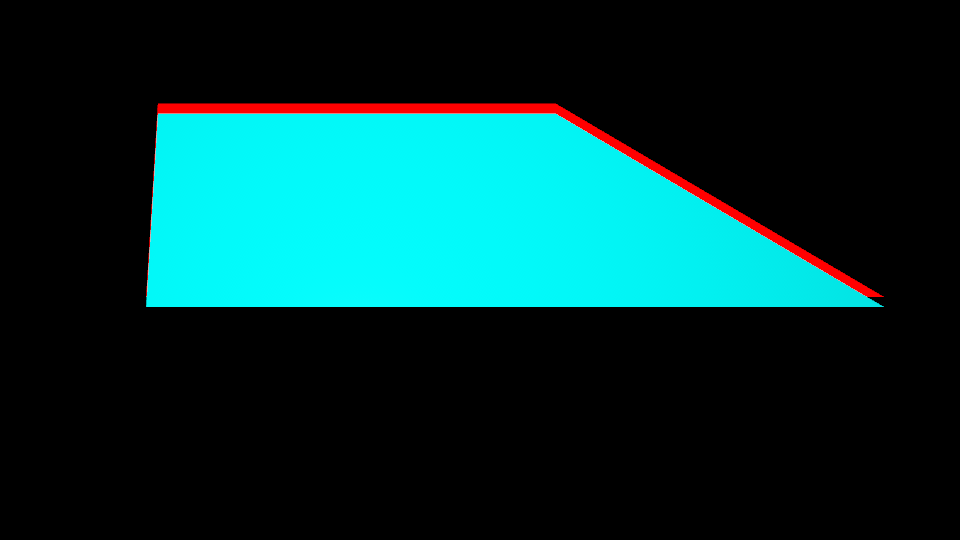Thanks for bringing this up. This idea has occurred to me and I called the proposed component OutlineMesh in my head too. However, it's quite a blunt feature and I'm not sure that it's the best way to add value.
Firstly, I assume you're aware of ATTRIBUTE_OUTLINE_NORMAL. In the case of flat polygons like the one shown in your screenshot, it is possible to calculate outlining normals that would not result in the outline being partially occluded. Although, i) the library doesn't offer such a calculator at present and ii) as with any hard edges the line thickness becomes inconsistent to some degree. auto_generate_outline_normals assumes the object is closed and has sensible normals already.
So, as you say more or less, to improve the quality of outlining hard edges you need to add extra triangles connecting surfaces that face in different directions. These triangles would be degenerate in the original object, but expand to fill the gaps when rendering the outline. You can author these into a mesh today, but you will pay the (small?) cost of the degenerate triangles when rendering the original object.
I see OutlineMesh as on one hand a performance improvement to only include the degenerate triangles when outlining, but on the other hand a waste of memory to be duplicating the rest of the mesh. I'm interested in whether I could i) calculate the degenerate triangles needed from a mesh automatically and ii) how to efficiently store the mesh so that I can render it with or without them as needed.
My question to you is then, do you really feel the need to have outline and non-outline versions of each mesh? If so, what will that accomplish versus building outline normals and/or extra triangles into a single mesh? Is it performance?
I've noticed that meshes which have "flat" regions have some issues with being highlighted correctly.
Here's a gist to illustrate the problem. The code there should be compatible with the latest
masterofbevy_mod_outline.Here's a screenshot to give a rough idea of the problem:
The cyan shape is "flat" meaning it has infinitely sharp edges. The outlining technique used by
bevy_mod_outlinedoesn't have any good choice of direction to move the outline vertices, so certain edges of the outline will get cut off depending on the angle of the camera relative to the mesh face.I don't expect
bevy_mod_outlineto solve this problem completely because a flat mesh doesn't generally provide enough information to reliably infer how to construct the outline mesh. I believe getting a good outline for the flat shape would require adding extra vertices and elements to the outline mesh, and that's probably beyond the scope of whatbevy_mod_outlinecan/should be doing.However, I think this adjustment to
bevy_mod_outlinecould allow users to fix these edge cases themselves while still taking advantage ofbevy_mod_outline:struct OutlineMesh(Handle<Mesh>)which defines the mesh that gets used to draw the outline. IfOutlineMeshisn't specified, then fall back to using the regularHandle<Mesh>component.Without<OutlineMesh>or some other filter toauto_generate_outline_normalsto allow users to exclude specific entities from automatic normal generation.OutlineMeshinstances for edge cases.Users can then customize the outline mesh however they need to for the effect that they want. For the flat mesh, extra vertices can be added at each corner with normal vectors that go out in all the necessary directions, and those new vertices can be connected together with new index elements. The rest of the pipeline, including the stenciling, can remain the same.
There are probably other edge cases that this adjustment would help to solve as well.
Does this sound like a desirable change to the crate? Since
OutlineMeshwould be an optional component, I believe the change could be made without breaking the API.